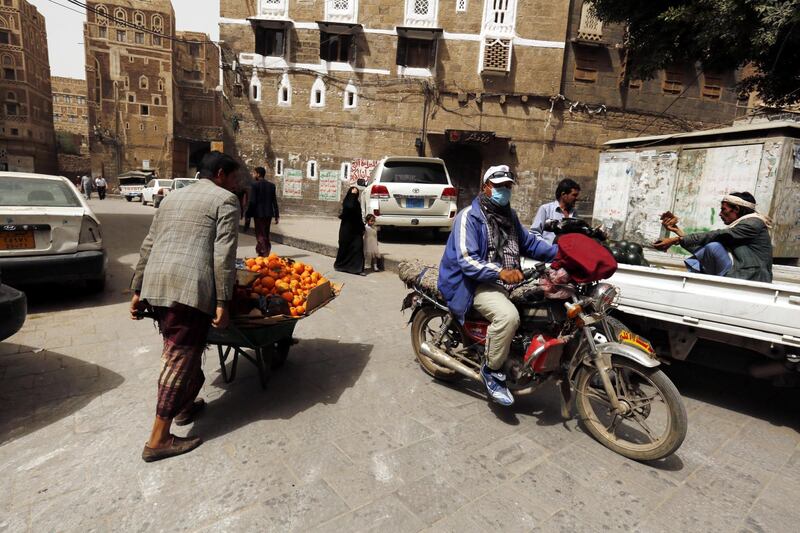Russia vetoed a United Nations Security Council resolution on Iranian meddling in Yemen on Monday evening, using its diplomatic muscle to force through a weaker text extending an arms embargo on the war-torn country.
It marks the second time in recent days that the Russian ambassador has used his position to shield a regional ally in the Middle East.
A British draft, which made explicit reference to Iran failing to prevent its weapons falling into the hands of Houthi fighters, was vetoed in favour of a Russian draft that made no reference to Iran’s role. It was passed unanimously.
The US led condemnation of the Russian veto.
“Russia has repeatedly stopped the Security Council from acting against the barbaric Assad regime in Syria. Today, Russia protected the terrorist-sponsoring regime in Iran,” said Nikki Haley, the US permanent representative to the UN.
“In spite of a mountain of credible, independent evidence showing Iran violated the Yemen arms embargo, resulting in a series of attacks on civilian targets, Russia prevented accountability and endangered the entire region.”
The drafting of the resolutions provoked days of diplomatic haggling.
Even before Monday, the United Kingdom had been forced to water down its draft resolution condemning Iran for violating the arms embargo on Yemen. Its final version instead expressed “particular concern” and simply said Iran had failed to comply with sanctions.
It followed publication of a report by a UN panel of experts on Yemen which concluded that Iran had failed to prevent its missiles and drones falling into the hands of Houthi rebels.
Speaking before the vote, Vassily Nebenzia, the Russian ambassador, said Moscow objected to the “selective and contentious” conclusions of the panel of experts.
“The wording advanced in the British draft is liable to have dangerous, destabilising ramifications, not only for Yemen but the region as a whole. This will inevitably escalate regional tensions and lead to conflict amongst key regional players,” he said.
The row came as the UN panel of experts on Yemen, charged with monitoring a 2015 arms embargo, formally presented its latest findings, which concluded that Iran was breaching sanctions. It said Tehran had failed to prevent Houthi rebels from obtaining Iranian missiles, including one fired hundreds of miles into Saudi Arabia.
It also said it was investigating reports that Iranian advisers are working with Houthi forces to fight the Saudi-led coalition.
The report adds weight to growing concerns about Iran's actions throughout the region.
More than 10,000 people have died in fighting in Yemen that began as a domestic conflict after Houthi rebels took control of the capital Sanaa. Millions of people are on the brink of famine and more than 22 million – almost the entire population – are in need, according to humanitarian agencies.
The report says: "The panel has identified missile remnants, related military equipment and military unmanned aerial vehicles that are of Iranian origin and were introduced into Yemen after the imposition of the targeted arms embargo.
“As a result, the panel finds that the Islamic Republic of Iran is in non-compliance with paragraph 14 of resolution 2216 (2015) in that it failed to take the necessary measures to prevent the direct or indirect supply, sale or transfer, of Borkan-2H short-range ballistic missiles, field storage tanks for liquid bi-propellant oxidizer for missiles and Ababil-T (Qasef-1) unmanned aerial vehicles, to the then Houthi-Saleh alliance."
Iran has always denied arming the Houthis and has instead accused the US of faking evidence or has pointed the finger at other nations.
On Monday, it once again denied the allegations and said Western powers were simply trying to shift the blame.
The Yemen vote came soon after days of diplomatic haggling at UN headquarters as Western and Arab officials tried to push through a ceasefire in Syria in the face of Russian opposition. Facing a possible veto, they softened the wording of a resolution, dropping a requirement that a cessation in fighting begin within 72 hours.
It has prompted a fresh round of soul searching about the UN’s ability to intervene in the world’s trouble spots.






